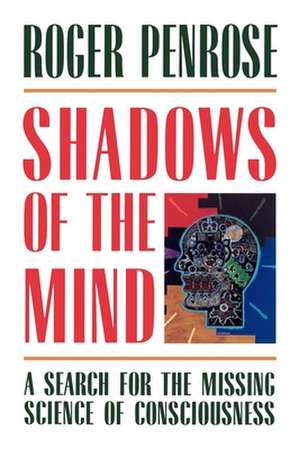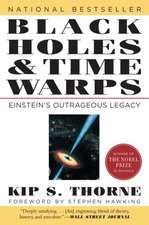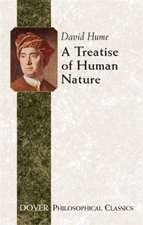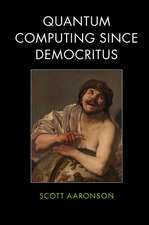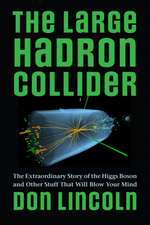Shadows of the Mind
Autor Roger Penroseen Limba Engleză Paperback – 31 iul 1996
Penrose contends that some aspects of the human mind lie beyond computation. This is not a religious argument (that the mind is something other than physical) nor is it based on the brain's vast complexity (the weather is immensely complex, says Penrose, but it is still a computable thing, at least in theory). Instead, he provides powerful arguments to support his conclusion that there is something in the conscious activity of the brain that transcends computation--and will find no explanation in terms of present-day science. To illuminate what he believes this "something" might be, and to suggest where a new physics must proceed so that we may understand it, Penrose cuts a wide swathe through modern science, providing penetrating looks at everything from Turing machines (computers programmed from artificial intelligence) to the implications of Godel's theorem maintaining that conscious thinking must indeed involve ingredients that cannot adequately be stimulated by mere computation. Of particular interest is Penrose's extensive examination of quantum mechanics, which introduces some new ideas that differ markedly from those advanced in The Emperor's New Mind, especially concerning the mysterious interface where classical and quantum physics meet. But perhaps the most interesting wrinkle in Shadows of the Mind is Penrose's excursion into microbiology, where he examines cytoskeletons and microtubules, minute substructures lying deep within the brain's neurons. (He argues that microtubules--not neurons--may indeed be the basic units of the brain, which, if nothing else, would dramatically increase the brain's computational power.) Furthermore, he contends that in consciousness some kind of global quantum state must take place across large areas of the brain, and that it within microtubules that these collective quantum effects are most likely to reside.
For physics to accommodate something that is as foreign to our current physical picture as is the phenomenon of consciousness, we must expect a profound change--one that alters the very underpinnings of our philosophical viewpoint as to the nature of reality. Shadows of the Mind provides an illuminating look at where these profound changes may take place and what our future understanding of the world may be.
| Toate formatele și edițiile | Preț | Express |
|---|---|---|
| Paperback (2) | 79.74 lei 21-33 zile | +28.59 lei 7-13 zile |
| Vintage Publishing – 7 sep 1995 | 79.74 lei 21-33 zile | +28.59 lei 7-13 zile |
| Oxford University Press – 31 iul 1996 | 282.73 lei 3-5 săpt. |
Preț: 282.73 lei
Nou
Puncte Express: 424
Preț estimativ în valută:
54.13€ • 56.26$ • 44.88£
54.13€ • 56.26$ • 44.88£
Carte disponibilă
Livrare economică 17-31 ianuarie 25
Preluare comenzi: 021 569.72.76
Specificații
ISBN-13: 9780195106466
ISBN-10: 0195106466
Pagini: 480
Dimensiuni: 156 x 234 x 25 mm
Greutate: 0.67 kg
Ediția:Reprint
Editura: Oxford University Press
ISBN-10: 0195106466
Pagini: 480
Dimensiuni: 156 x 234 x 25 mm
Greutate: 0.67 kg
Ediția:Reprint
Editura: Oxford University Press
Descriere
The bestselling author of The Emperor's New Mind offers another exhilarating look at modern science as he mounts an even more powerful attack on artifical intelligence. Shadows of the Mind points the way to a new science, one that may eventually explain the physical basis of the human mind. 49 illustrations.
Notă biografică
Roger Penrose is the Rouse Ball Professor of Mathematic at the University of Oxford. He is the author of The Emperor's New Mind, which was a New York Times bestseller and was awarded the UK's 1990 COPUS Prize for science writing. In 1988, he received the internationally prestigious Wolf Prize for physics, shared with Stephen Hawking, for their joint contribution to our understanding of the universe.
